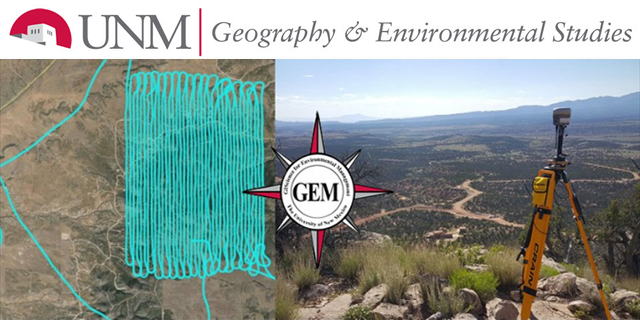
Geography ETDs
Publication Date
6-9-2016
Abstract
This project aims to provide greater understanding of the agricultural practices of prehistoric cultures throughout the arid and semi-arid environments of western New Mexico by developing a remote sensing suitability model that will identify prime environments for a specific form of agricultural field, ak chin, that are often difficult to locate with standard field-based archaeological methods. Remote sensing and Geographic Information Systems methods were applied to develop suitability models that will identify ideal environments for ak chin style agricultural fields based on a small training data sample. Three models: Mahalanobis Technicality, Maximum Entropy (Maxent), and Multi-Criteria Evaluation Ordered Weighted Average (MCE OWA) were used and the suitability raster results were compared. Area Under the Curve (AUC) values were calculated and used to validate model results. Although archaeological fieldwork is a required follow up to these results, technological verification methods indicate that Mahalanobis Typicality and Maxent performed well in identifying potential new prehistoric agricultural fields.
Degree Name
Geography
Department Name
Geography
Level of Degree
Masters
First Committee Member (Chair)
Phillips, David Jr
Document Type
Thesis
Language
English
Keywords
Ak Chin, Suitability Modeling, Mahalanobis Typicality, Maxent, Multi-Criteria Evaluation Ordered Weighted Average, Prehistoric Agriculture
Recommended Citation
Healy, Alissa. "A Comparison of Presence Only Suitability Models to Accurately Identify Prehistoric Agricultural Fields in Western New Mexico Through Remote Sensing." (2016). https://digitalrepository.unm.edu/geog_etds/24
